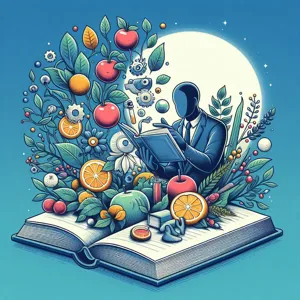Embarking on your golfing journey is as much about the joy of the game as it is about mastering the swing that will define your experience on the course.
Whether you’re a novice looking to grasp the fundamentals or an experienced player aiming to refine your technique, selecting the right golf instructor can make all the difference in your development and enjoyment of the sport. With countless options available, each promising to elevate your game, the decision can feel overwhelming. In this guide, we’ll explore key factors to consider when choosing a golf instructor, from their teaching style and experience to their ability to tailor lessons to your unique goals. Get ready to discover how the right guidance can help you find your perfect swing and unlock your full potential on the fairway!
1. Understanding the Importance of a Golf Instructor

Choosing the right golf instructor is a critical step in your journey to mastering the game. A skilled instructor not only possesses a wealth of technical knowledge but also brings experience and insight that can dramatically improve your swing, short game, and overall understanding of golf. Many players underestimate the importance of instruction, believing that they can teach themselves through trial and error or by watching videos online. While self-learning can provide a foundation, nothing compares to the personalized guidance that a professional instructor can offer.
A good golf instructor serves as a mentor, using their expertise to identify your unique strengths and weaknesses. They will tailor their teaching approach to suit your individual learning style, ensuring that the lessons resonate with you and translate into effective improvement on the course. This personalized attention is invaluable; it allows you to progress at your own pace while providing the necessary feedback to refine your technique.
Moreover, an instructor can help you set realistic goals, providing a roadmap to your development as a golfer. Whether you’re a complete beginner looking to grasp the basics or an experienced player aiming to shave strokes off your game, a qualified instructor will help you navigate the complexities of golf with greater confidence and skill. Their ability to break down intricate mechanics into digestible lessons makes the learning process not only effective but also enjoyable.
Ultimately, investing in a golf instructor is investing in your future enjoyment of the game. By choosing the right mentor, you’ll not only improve your technical abilities but also cultivate a deeper appreciation for the sport. A great instructor empowers you to play with confidence, allowing you to fully embrace the challenges and joys that golf has to offer.
2. Assessing Your Skill Level and Goals
Before embarking on your journey to find the perfect golf instructor, it’s crucial to take a step back and assess your current skill level and define your goals. Understanding where you stand on the golf spectrum will not only help you choose an instructor who aligns with your abilities but also clarify what you hope to achieve through lessons.
Begin by honestly evaluating your skill level. Are you a complete novice, just learning to navigate the course and hold a club? Or are you a seasoned player looking to refine your swing and improve your handicap? Knowing your experience level will guide you toward instructors who specialize in teaching students at similar stages. Many instructors have specific niches—some focus on beginners while others thrive in helping advanced players break through performance barriers.
Next, set clear, achievable goals for your golf game. Do you aspire to play competitively, or are you simply looking to enjoy a few rounds with friends on the weekend? Maybe you want to lower your score on the course or learn how to hit a consistent drive. By establishing your objectives, you’ll be better equipped to find an instructor who not only understands your ambitions but can also craft a teaching plan tailored to your needs.
Consider what aspects of your game you’d like to improve. Are you struggling with your short game, or do you feel your driving could use a little more power and accuracy? Communicating these specific areas of focus to potential instructors will ensure they have the expertise to help you reach your goals.
Ultimately, assessing your skill level and goals is a critical foundational step in your search for the right golf instructor. By being honest with yourself about where you stand and where you wish to go, you’ll pave the way for a more effective learning experience, leading you closer to that perfect swing.
3. Types of Golf Instructors: PGA Professionals vs. Local Coaches

When embarking on your journey to improve your golf game, one of the most critical decisions you’ll face is choosing the right instructor. The landscape of golf instruction is diverse, primarily divided between PGA Professionals and local coaches, each offering unique advantages and approaches that cater to different needs and skill levels.
**PGA Professionals** are often regarded as the gold standard in golf instruction. These instructors have undergone rigorous training and certification through the Professional Golfers’ Association, ensuring they possess a deep understanding of the game, its mechanics, and teaching methodologies. Typically, PGA Professionals work at established golf courses or clubs and may also have experience competing at a high level. Their lessons often incorporate advanced technology, such as swing analysis tools and launch monitors, providing a data-driven approach to improving your performance. If you’re looking for a structured learning experience, a PGA Professional can offer valuable insights into the finer nuances of the game, including course management, mental strategies, and swing mechanics.
On the other hand, **local coaches** can bring a more personalized and flexible approach to your instruction. These coaches may not have the formal credentials of a PGA Professional, but they often have extensive experience and a genuine passion for teaching the game. Local coaches can be found in various settings, from community golf courses to private training facilities. They tend to cater to a wider range of players, from beginners to seasoned golfers, and often focus on the fundamentals of the game. Their lessons may be less formal but can provide a relaxed atmosphere conducive to learning. Moreover, local coaches often offer competitive pricing and more flexible scheduling options, making them accessible to those who may be just starting or are on a budget.
Ultimately, the choice between a PGA Professional and a local coach boils down to your personal preferences, learning style, and specific goals. Consider factors such as your current skill level, the type of instruction you respond to best, and the overall environment you thrive in. Regardless of your choice, investing in quality instruction is a crucial step toward finding your perfect swing and elevating your performance on the course.
4. Evaluating Instructor Credentials and Experience
When it comes to selecting the right golf instructor, evaluating credentials and experience is paramount. The world of golf instruction is diverse, populated by a range of professionals from seasoned PGA members to local pros with a passion for the game. However, not all instructors are created equal, and understanding their qualifications can significantly impact your learning experience.
Start by looking for instructors who hold certifications from recognized golf organizations, such as the Professional Golfers’ Association (PGA) or the United States Golf Teachers Federation (USGTF). These certifications indicate a level of professionalism and commitment to teaching the game. Additionally, inquire about their teaching philosophy. A good instructor should not only have a robust understanding of golf mechanics but also the ability to communicate concepts clearly and effectively, tailoring their approach to fit your unique learning style.
Experience matters, too. An instructor with years of teaching experience will likely have encountered a variety of skill levels and challenges, equipping them with the tools to help you improve. Ask potential instructors about their teaching history—how long they’ve been coaching, the types of students they’ve worked with, and any specific areas of expertise they might have. For instance, some instructors may specialize in beginners, while others excel in coaching advanced players or focusing on particular aspects of the game, such as short game or swing mechanics.
Don’t hesitate to seek out reviews or testimonials from former students. These insights can provide a glimpse into the instructor’s effectiveness and teaching style, helping you gauge whether they are the right fit for you. Ultimately, choosing a golf instructor with the right credentials and experience can set the stage for a rewarding learning journey, enabling you to refine your skills and find your perfect swing on the course.
5. The Role of Teaching Style in Your Learning

When it comes to mastering the art of golf, the teaching style of your instructor can significantly influence your learning experience and overall progress. Each golfer is unique, with different strengths, weaknesses, and ways of processing information. Therefore, finding an instructor whose teaching style aligns with your learning preferences is essential for effective skill development.
Some instructors adopt a hands-on approach, preferring to demonstrate techniques and provide immediate feedback as you practice. This style can be particularly beneficial for visual learners who thrive on seeing the correct motions in action. If you find yourself struggling to grasp concepts through verbal explanations alone, a teacher who emphasizes demonstration might just be the perfect fit for you.
Conversely, other instructors may lean toward a more analytical style, focusing on the mechanics of the swing and encouraging you to understand the theory behind each movement. This approach caters to those who enjoy delving into the technical aspects of the game, helping you develop a deeper understanding of how each part of your swing contributes to overall performance. If you’re the type of golfer who enjoys problem-solving and seeks to comprehend the “why” behind each technique, this teaching style could resonate with you.
Additionally, consider whether you prefer a structured lesson format or a more relaxed, conversational approach. Some instructors thrive on creating a formal environment, with meticulously planned sessions that build upon each other, while others may foster a more informal atmosphere, encouraging questions and shared experiences. Finding the right balance between structure and flexibility can help you feel more comfortable and engaged during lessons, ultimately enhancing your learning process.
It’s also worth noting the importance of an instructor’s personality and communication style. An encouraging and supportive teacher can help boost your confidence, while a more critical approach may push you to strive for excellence. The key is to recognize what motivates you as a learner and seek an instructor whose style complements that motivation.
In summary, the teaching style of your golf instructor is a crucial aspect of your development as a player. Take the time to evaluate your learning preferences, and don’t hesitate to ask potential instructors about their methods. A strong match between your learning style and their teaching approach can pave the way for a more enjoyable and productive golfing journey. Remember, the right instructor can not only help you perfect your swing but also ignite a lasting passion for the game.
6. Finding an Instructor with a Good Track Record
When it comes to honing your golf skills, the importance of selecting an instructor with a solid track record cannot be overstated. A good golf instructor should not only possess a wealth of knowledge and experience but also have a proven history of helping students improve their game. As you embark on your journey to find the perfect instructor, consider looking for testimonials and success stories from past students. A reputable instructor will often showcase their achievements, whether through personal accolades, notable student improvements, or even participation in local tournaments.
Don’t hesitate to ask potential instructors about their teaching philosophy and results. How long have they been teaching? What types of students have they worked with—beginners, intermediate players, or advanced golfers? An instructor who has successfully guided a diverse range of players can often adapt their teaching style to suit your unique needs. Furthermore, consider the instructor’s familiarity with the specific aspects of the game you want to improve. Whether it’s driving accuracy, putting technique, or course management, an expert in that area will likely offer more targeted guidance.
Also, take into account their credentials. Look for certifications from recognized golf teaching organizations, as these can be indicators of a commitment to continuous learning and professional development. Ultimately, your ideal golf instructor should not only have a good track record but also be someone with whom you feel comfortable and inspired to learn. Trust your instincts—if their past successes and teaching style resonate with you, you’re on the right path to finding an instructor who can help you perfect your swing and elevate your game to new heights.
7. Importance of Communication and Rapport

When it comes to finding the right golf instructor, communication and rapport are pivotal elements that can significantly influence your learning experience. Golf is as much a mental game as it is a physical one, and the connection you establish with your instructor can make all the difference in your progress and enjoyment of the sport. A strong rapport fosters an environment where you feel comfortable asking questions, expressing concerns, and discussing your goals openly.
Think about it: golf can be frustrating at times, and having an instructor who listens to your challenges and adapts their teaching style to suit your needs can be incredibly beneficial. An effective instructor will not only provide technical guidance but will also motivate and inspire you to push through obstacles. Look for someone who encourages open dialogue—this means not only providing feedback but also being receptive to your thoughts and feelings about your game.
Additionally, effective communication extends beyond just verbal exchanges; it encompasses how your instructor demonstrates techniques, uses visual aids, and offers constructive criticism. A great instructor should be able to convey complex concepts in a way that resonates with you, bridging the gap between theory and practice.
Ultimately, choosing an instructor with whom you feel a genuine connection can enhance your learning curve and make every lesson more enjoyable. After all, golf is a lifelong journey, and having the right partner by your side can help you navigate the ups and downs with confidence and ease. So, as you seek out potential instructors, pay attention not only to their credentials and experience but also to the quality of your interactions—this could be the key to unlocking your perfect swing.
8. The Benefits of In-Person vs. Online Lessons
When it comes to selecting a golf instructor, one of the key decisions you’ll face is whether to opt for in-person lessons or embrace the convenience of online instruction. Both formats offer unique advantages, and understanding these can help you make an informed choice that aligns with your learning style and goals.
**In-Person Lessons:** The traditional method of learning golf through face-to-face interaction has numerous benefits. For starters, in-person lessons provide immediate, real-time feedback from your instructor. They can observe your swing mechanics closely, make instant corrections, and offer personalized tips that may be difficult to convey through a screen. Additionally, the physical presence of your instructor can create a more engaging and motivating environment. You’ll not only receive guidance on your technique but also the opportunity to practice on the course or driving range under their watchful eye. This hands-on approach fosters a deeper connection and understanding of the game, as your instructor can adjust their teaching style based on your progress and body language.
**Online Lessons:** On the other hand, the rise of technology has made online lessons a popular and accessible option for many golfers. One of the primary benefits of online instruction is flexibility. You can learn at your own pace, fitting lessons into your schedule without the constraints of travel or specific lesson times. Many online platforms also offer a wealth of resources, including instructional videos, drills, and practice plans that you can revisit as needed. Moreover, online lessons often come at a lower cost than in-person sessions, making them an economical option for golfers who want to improve without breaking the bank.
However, while online lessons can be incredibly effective, they may lack the personalized touch that comes from in-person coaching. It can be challenging to assess subtle nuances in your swing or posture without a trained eye watching and guiding you in real time.
Ultimately, the choice between in-person and online lessons may come down to personal preference, budget, and availability. Many golfers find a hybrid approach works best—starting with a few in-person lessons to establish a solid foundation and then supplementing with online resources for continued learning. By weighing the benefits of each option, you’ll be better equipped to find an instructor and format that will help you refine your swing and elevate your game.
9. What to Look for in a Lesson Plan
When it comes to choosing the right golf instructor, having a well-structured lesson plan is key to maximizing your learning experience on the course. A comprehensive lesson plan should serve as a roadmap, guiding you through the various aspects of the game while addressing your specific needs and goals. Here’s what to look for when evaluating a potential instructor’s lesson plan:
**1. Customized Approach:** A good instructor will tailor the lesson plan to suit your skill level, physical capabilities, and learning style. Whether you’re a beginner looking to grasp the fundamentals or an advanced player aiming to refine your technique, the plan should reflect your personal golfing journey.
**2. Clear Objectives:** Each lesson should have defined objectives, helping you understand what you’re aiming to achieve. These goals might include improving your swing mechanics, mastering short game techniques, or enhancing your mental game. Clear objectives not only help you stay focused but also allow you to measure your progress over time.
**3. Progressive Structure:** A well-designed lesson plan will gradually increase in complexity. Starting with basic concepts, the instructor should build upon your skills incrementally, ensuring you have a solid foundation before moving on to more advanced techniques. This step-by-step approach not only prevents overwhelm but also fosters a sense of accomplishment as you improve.
**4. Variety of Drills and Exercises:** To keep lessons engaging and effective, your instructor should incorporate a variety of drills and exercises that target different aspects of your game. This could range from swing analysis and putting practice to course management strategies. A diverse set of activities not only makes learning fun but also helps reinforce key concepts.
**5. Feedback and Assessment:** Constructive feedback is essential for growth. Look for an instructor who regularly assesses your performance and provides actionable insights. This could involve video analysis, on-course evaluations, or simple verbal feedback. Regular check-ins ensure you stay on track and make necessary adjustments to your technique.
**6. Flexibility:** Life can be unpredictable, and your lesson schedule should accommodate that. An effective lesson plan should allow for flexibility, enabling you to reschedule or adjust lesson frequency as needed. This adaptability ensures that your learning process remains consistent, even amidst a busy lifestyle.
**7. Communication Style:** Finally, the instructor’s communication style should resonate with you. Whether they are encouraging, straightforward, or analytical, an effective instructor will be able to convey complex information in a way that you understand and appreciate. A strong rapport can significantly enhance your learning experience, making you more comfortable to ask questions and seek clarification.
By focusing on these essential components, you can find an instructor whose lesson plan aligns with your goals and learning style. Remember, the right lesson plan can make all the difference in your quest to master the perfect swing!
10. Trial Lessons: Testing the Waters
When it comes to finding the right golf instructor, trial lessons are an invaluable opportunity to test the waters before committing to a full course of instruction. Think of these initial sessions as a chance to dip your toes into the world of personalized coaching, providing insight into the instructor’s teaching style and how well it aligns with your learning preferences.
During a trial lesson, pay attention to how the instructor communicates. Are they clear and patient in their explanations? Do they take the time to understand your unique challenges and goals? This interaction is crucial; a good instructor should not only impart knowledge but also inspire confidence and enthusiasm for the game.
Moreover, observe the instructor’s ability to analyze your swing. A skilled coach will assess your current technique and offer tailored feedback, helping you identify areas for improvement. This personalized attention can be the difference between a cookie-cutter approach and a customized plan that truly resonates with your individual needs.
Don’t hesitate to ask questions during your trial lesson. Inquire about their teaching philosophy, experience, and the progression you can expect from their lessons. This dialogue will provide deeper insight into whether they are the right fit for you.
Ultimately, trial lessons serve as a valuable stepping stone in your quest for the perfect swing. They allow you to explore various teaching styles, gauge compatibility, and, most importantly, find an instructor who can guide you on your journey to mastering the game of golf. So, take the plunge—book a trial lesson and see where it leads you!
11. Reading Reviews and Testimonials
When it comes to finding the right golf instructor, reading reviews and testimonials can be a game-changer. Just as you would scrutinize online reviews before booking a vacation or purchasing a new gadget, diving into the experiences of previous students can provide invaluable insight.
Start by exploring platforms where golfers share their experiences—social media groups, golf forums, or dedicated review sites. Pay attention to what students have to say about their learning experiences: Did they feel the instructor was knowledgeable and approachable? Were lessons tailored to their individual needs and skill levels? Did they see tangible improvements in their game?
A well-rounded instructor will have reviews reflecting a balance of technical skills and interpersonal qualities. Look for instructors who not only emphasize swing mechanics but also create a positive, encouraging atmosphere. Testimonials can also reveal how instructors handle different learning styles, which can be especially important if you’re a beginner or someone looking to refine specific skills.
Consider checking for video testimonials as well; these can offer a more personal touch and showcase the instructor’s teaching style in action. Remember, while a few negative reviews can be expected in any field, consistently poor feedback is a red flag.
Ultimately, reading reviews and testimonials will help you gauge the instructor’s reliability, effectiveness, and compatibility with your learning style, ensuring that you make an informed decision as you embark on your journey to perfect your swing.
12. Considering Location and Availability
When it comes to selecting the right golf instructor, location and availability are crucial factors that can significantly influence your overall experience and progress on the course. Think about the practicalities of getting to and from your lessons—will you be able to easily commute to the driving range or golf club where the instructor is based? Ideally, you want to find a location that minimizes travel time, allowing you to focus more on your game and less on logistics.
Additionally, consider the instructor’s availability and how it aligns with your schedule. Golf lessons are most effective when they fit seamlessly into your life, so look for someone who offers flexible hours, whether that means early morning sessions before work or weekend slots that accommodate your free time. Some instructors even provide online lessons, which can be a convenient option if you’re struggling to find time for in-person sessions.
Also, don’t hesitate to reach out to potential instructors to discuss their scheduling policies and see if they can accommodate any specific time constraints you may have. Remember, a great instructor is not only someone who can teach you the fundamentals of the game but also one whose availability complements your lifestyle, ensuring that learning golf becomes an enjoyable and stress-free journey. By taking these factors into account, you’ll be well on your way to finding a golf instructor who is not only skilled but also perfectly suited to your needs and schedule.
13. Pricing Structures: What to Expect
When it comes to selecting the right golf instructor, understanding pricing structures is essential. Golf lessons can vary widely in cost, influenced by factors such as the instructor’s experience, location, and the format of the lessons. Typically, you can expect to encounter several pricing models, each catering to different budgets and learning preferences.
**Hourly Rates:** Most instructors charge an hourly rate, which can range anywhere from $50 to over $200 per hour. Highly experienced coaches, especially those with a professional background or certifications, tend to command higher fees. However, don’t let price alone dictate your choice; the quality of instruction and the ability to connect with your instructor are just as critical.
**Package Deals:** Many instructors offer package deals that provide a discount for purchasing multiple lessons upfront. This can be a cost-effective way to commit to your improvement, often saving you a significant amount compared to single-session rates. Package deals can also encourage consistency in your practice, as regular lessons help reinforce what you’ve learned.
**Group Lessons:** If you’re looking for a more affordable option, consider group lessons. These sessions typically involve several students and are priced lower than individual lessons. While the personalized attention may be lessened, group lessons can foster a fun, competitive environment, and you may benefit from watching and learning alongside others.
**Special Programs:** Some instructors might offer specialized programs, such as short game clinics or intensive weekend workshops, with varying pricing structures. These focused sessions can be an excellent opportunity to dive deeper into specific aspects of your game at a reasonable cost.
**Trial Lessons:** Don’t hesitate to ask if instructors offer trial lessons at a reduced rate. This allows you to gauge their teaching style and determine if it’s a good fit for you without a large commitment.
Ultimately, while understanding the price is important, remember that the most valuable investment is in the quality of instruction you receive. Look for an instructor who not only fits your budget but also aligns with your learning style, goals, and personality. Finding the right fit will make all the difference in your journey to perfect your swing.
14. Setting Realistic Expectations for Improvement
Setting realistic expectations for improvement is a crucial step in your journey to becoming a better golfer. Golf, by its very nature, is a complex sport that requires not only physical skill but also mental acuity and emotional resilience. Understanding this complexity can help you frame your expectations in a way that is both motivating and achievable, allowing you to enjoy the learning process without undue frustration.
When you first embark on your golfing journey or decide to improve your swing, it’s essential to remember that mastery doesn’t happen overnight. The greats of the game have spent countless hours honing their skills, often under the guidance of expert instructors. As you begin lessons, take stock of where you currently stand in terms of your skills and knowledge. Discuss your goals with your instructor, whether it’s lowering your handicap, improving your drive, or mastering the short game. This will help them tailor their teaching methods to suit your specific needs.
Consider breaking down your improvement into smaller, incremental goals. Instead of aiming for an immediate, dramatic transformation in your swing, focus on specific aspects such as grip, stance, or follow-through. Celebrate the small victories along the way, such as consistently hitting straighter shots or achieving better distance control. This approach helps maintain motivation and keeps frustration at bay.
Additionally, it’s important to be patient with yourself. Golf is a game of repetition and muscle memory, and it takes time for new techniques to become second nature. You may have days where everything clicks and others where progress feels stagnant. Embrace the process, and remember that even professional golfers experience ups and downs in their performance.
By setting realistic expectations and maintaining open communication with your instructor, you can create a productive learning environment that encourages growth and fosters a deeper love for the game. With time, patience, and dedication, you’ll find yourself swinging with more confidence and skill than ever before.
15. Conclusion: Making the Right Choice for Your Golf Journey
In conclusion, selecting the right golf instructor is a pivotal step in your golfing journey, one that can significantly enhance your skills, boost your confidence, and deepen your love for the game. As you embark on this search, remember that the ideal instructor isn’t just someone with impressive credentials or a long list of accolades; it’s a person who resonates with your individual learning style, understands your goals, and inspires you to reach your potential.
Take the time to research potential instructors, attend a few trial lessons, and engage in honest conversations about your aspirations and areas for improvement. Pay attention to how they communicate—do they simplify complex concepts? Are they patient and encouraging? The right fit will feel like a partnership, a collaborative effort to refine your technique, strategize your play, and ultimately enjoy the game more fully.
Moreover, don’t hesitate to reassess your choice if things don’t feel right after a few lessons. Golf is as much about enjoyment as it is about improvement, and your instructor should enhance your experience on the course, not detract from it. Remember, every great golfer started as a beginner, and the journey is just as important as the destination. So, trust your instincts, invest in your development, and watch your game flourish under the guidance of the right instructor. Here’s to finding your perfect swing and making your golf journey an exhilarating and fulfilling adventure!
In conclusion, finding the perfect golf instructor can be a transformative step in your journey toward mastering the game. By considering factors such as teaching style, experience, and personal compatibility, you can ensure that your lessons are not just informative but also enjoyable. Remember that a great instructor will not only help you refine your technique but will also inspire you to cultivate a deeper love for golf. As you embark on this exciting path, take the time to explore different instructors, ask questions, and trust your instincts. With the right guidance, you’ll be well on your way to achieving that perfect swing and enjoying every moment on the course. Happy golfing!








